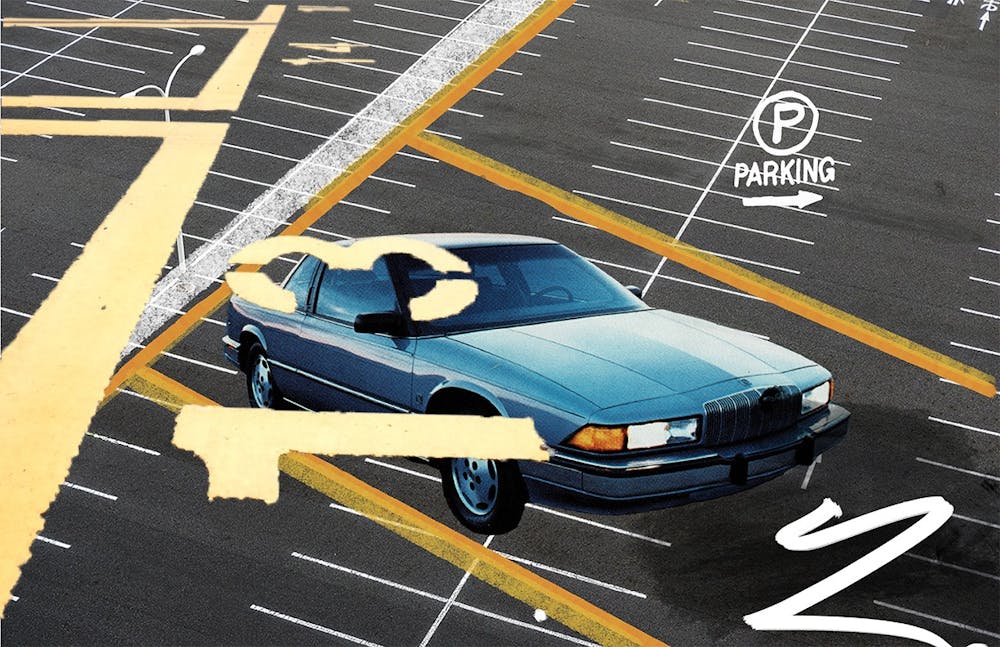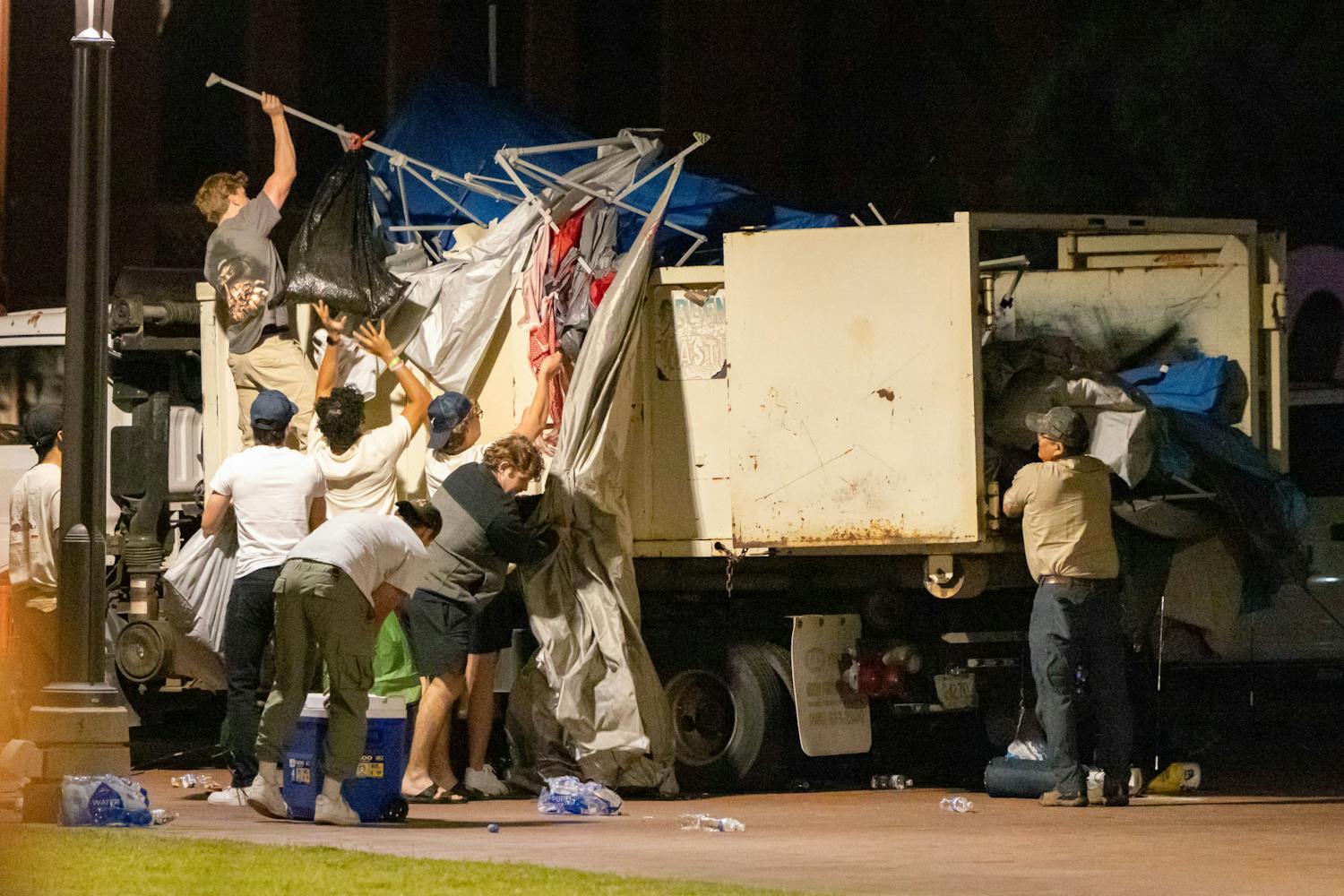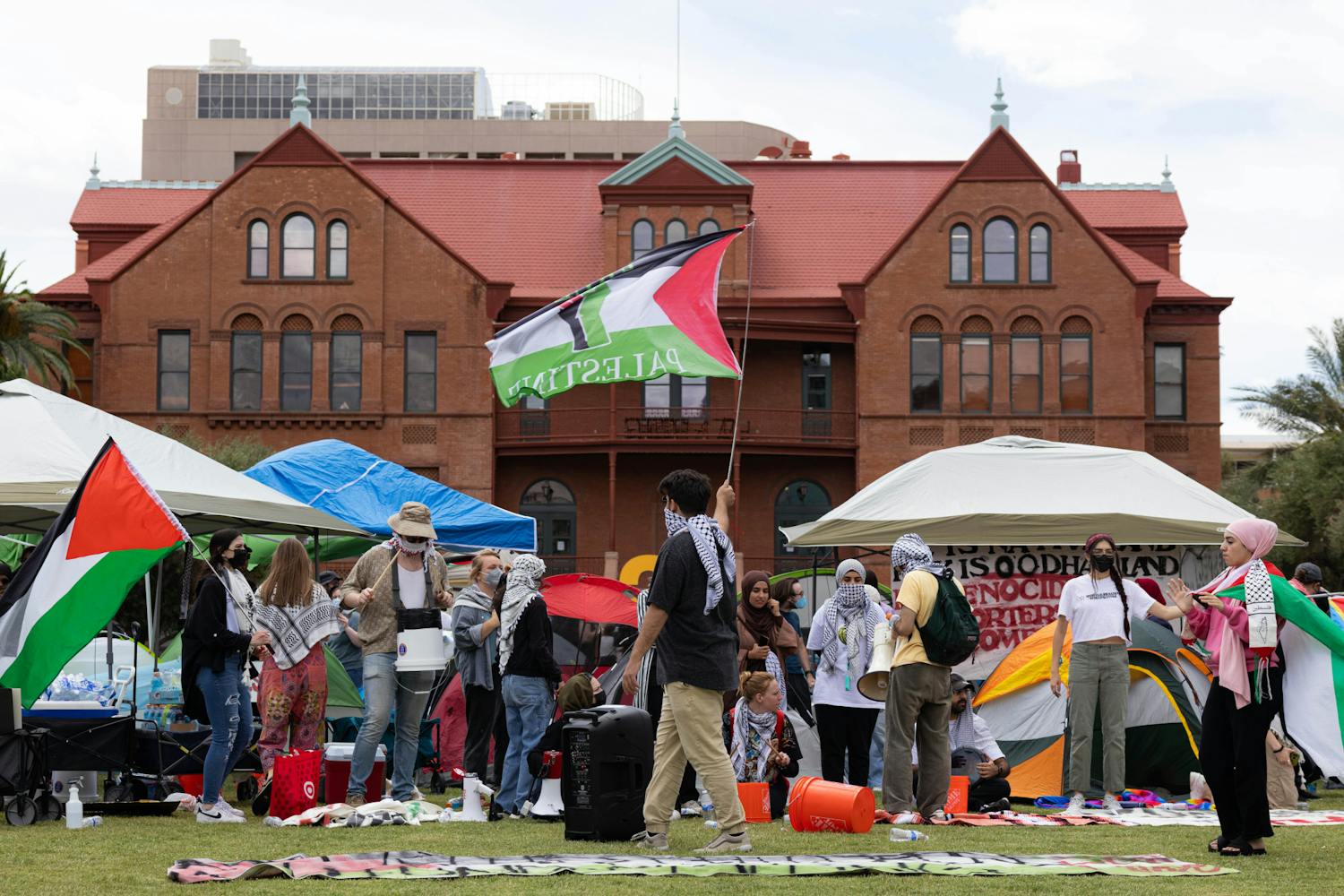Forget Lightning McQueen and Radiator Springs — the Phoenix metropolitan area is the true pit stop for motorized vehicles.
In 2020, car owners in metro Phoenix spent more money to buy vehicles than those in any other city in the country, according to 2019-20 data from the Bureau of Labor Statistics. With 76% of students living off campus at ASU, according to a U.S. News report, students at the University are no stranger to a long commute on one of the Valley’s winding freeways.
For many students, one ASU entity often brings the blissful car cruise to a screeching halt: Parking and Transit Services.
With fewer than three stars on Google Reviews, ASU Parking and Transit Services has a mixed reputation among members of the ASU community. “ASU’s parking services are predatory because they know students don’t have any other options on where to park,” one impassioned Google review from a few months ago reads. Other complaints about poor customer service and high fees date back years.
When asked about the complaints, a Parking and Transit Services representative said in an email “Parking and Transit Services receives no student mandated fees and responds to customers as quickly as volume allows via in-person office hours, online and calls through ASU’s Experience Center.”
For some commuter students, housing prices near ASU have forced them to find accommodations farther from their home campus. That’s the case for Garrett Busby, a senior studying supply chain management.
Busby lives about 25 minutes away from the Tempe campus and 10 minutes from Polytechnic. He said housing is more affordable in Mesa than it is near downtown Tempe, and so is parking. He bought a parking pass for the Polytechnic campus instead of Tempe and parks there every morning before catching the shuttle to ASU’s main campus.
Phoenix is a case study in urban sprawl, a place where copy-paste houses are seemingly endless and an hour-long commute is ordinary. In other words, metro Phoenix is spread out. And so is ASU. The route linking Polytechnic and West is over 50 miles.
“Density is the single most important factor for transit to be successful,” said Steven Polzin, a research professor at the Ira A. Fulton Schools of Engineering and a former senior advisor at the U.S. Department of Transportation.
Phoenix had a population density of about 3,100 people per square mile in 2020, according to data from the U.S. Census Bureau. In comparison, New York City, often considered to have one of the best public transportation systems in the U.S., had a population density of over 29,000 people per square mile in 2020.
“You need that high concentration of activities and people to generate the kind of travel demands that justify investment in a transit service that’s frequent enough to be attractive,” Polzin said. Greater parking availability and lower parking costs tend to encourage people to drive their own cars instead of taking public transportation.
More than a fee
One of my first experiences on campus as a freshman consisted of waiting in a winding line for three hours just to get my hands on a University parking pass. By the time I had reached the front, the Parking and Transit Services office was closing in 20 minutes. When I first queued myself in the line, it wrapped around the entire University Center building. Those of us at the end couldn’t see where the Parking and Transit Services office was. Many gave up and left before reaching the front, where two workers collected students’ payment.
The parking pass in question was for the East garage, about 0.7 miles from my residence at the time. The garage is far from campus and the walk is often unbearable in the heat. I swore that I’d never park in that garage ever again.
The next year, when it was time to forge out for a coveted parking pass, I set four alarms and woke up at 7:30 a.m. to buy my pass online the second the portal opened. Clumsily, I made a mistake and clicked the link too late — about three seconds after it opened. I was already over 100 spots behind in the queue. And I was one of the lucky ones.
About half an hour later I was short nearly $800 and had secured a parking spot close to campus. Sadly, it was a rooftop spot, and would provide absolutely no protection for my car from the unbearable Phoenix sun.
My strife isn’t unique. Gideon Friedman, a third-year film student, said the parking situation was “bleak” when he was living in Phoenix. He was originally given the wrong parking pass and had to go back to Parking and Transit Services for a new one. When he went in person to receive the correct pass, the worker wasn’t sure what to do; Friedman waited 45 minutes for the manager to return to the office.
“I was kind of just sitting there in the office and a line started building up,” Friedman said.
The parking spot he did acquire — a place in the Second Avenue Lot on the Downtown campus — “was like a dirt lot that hadn’t been maintained in years, constant potholes, not great and the same price as (lots in Tempe) which are much nicer,” according to Friedman.
The Second Avenue lot is paved but has potholes and little shade to protect cars from the sun. It’s currently priced at $720 annually.
In order to avoid the high prices of on campus parking, Téa Zawilak, a sophomore studying biomedical informatics, found a way to circumvent Parking and Transit Services entirely. Instead, she parks at Tempe’s Church of Jesus Christ of Latter-Day Saints, which has a parking garage on campus. Instead of paying ASU, Zawilak said she pays the church a $5 fee every semester and maintains at least 75% attendance in a class that the church offers.
“Parking is a cost that people don’t really tell you about, but it definitely adds up over the four years,” said Zawilak.
Zawilak isn’t alone — every year, many students find creative ways to avoid purchasing an ASU parking pass. Leticia Fierro, an ASU class of 2017 alum, didn’t pay the University a cent for parking in all of her four years of schooling.
“They were just always too expensive,” Fierro recalled. The average price of parking permits available on Tempe campus is $686.67 per calendar year.
Rather than forking over hundreds of dollars, she instead paid for a parking spot at her off-campus apartment, which was cheaper than paying the University. Then, she would walk to class from her apartment. In the summer months, she said it was extremely difficult to walk or bike to class due to the heat.
“I still found it a better option, although I would get to class all sweaty and gross,” Fierro said.
There are 15 lots or garages available to students in Tempe, 28 on Polytechnic, 10 on Downtown and 10 on West campus.
When asked about demand for parking versus supply, the spokesperson said “overall, ASU has sufficient parking for the current demand.”
Despite the prices and long waits, this coming summer I will be up early to get the most convenient, and thus expensive, parking pass possible — and I won’t make the mistake of clicking the link three seconds late either.
Edited by Sam Ellefson, Camila Pedrosa, Alexis Moulton and Greta Forslund.
This story is part of The Culture Issue, which was released on Feb. 8, 2023. See the entire publication here.
Reach the reporter at kbippus@asu.edu and follow @BippusKeetra on Twitter.
Like State Press Magazine on Facebook and follow @statepressmag on Twitter and Instagram.

Keetra Bippus is a reporter for State Press Magazine and a journalism student at Walter Cronkite School of Journalism and Mass Communication. She's previously reported for AZ Big Media and the Downtown Devil.





